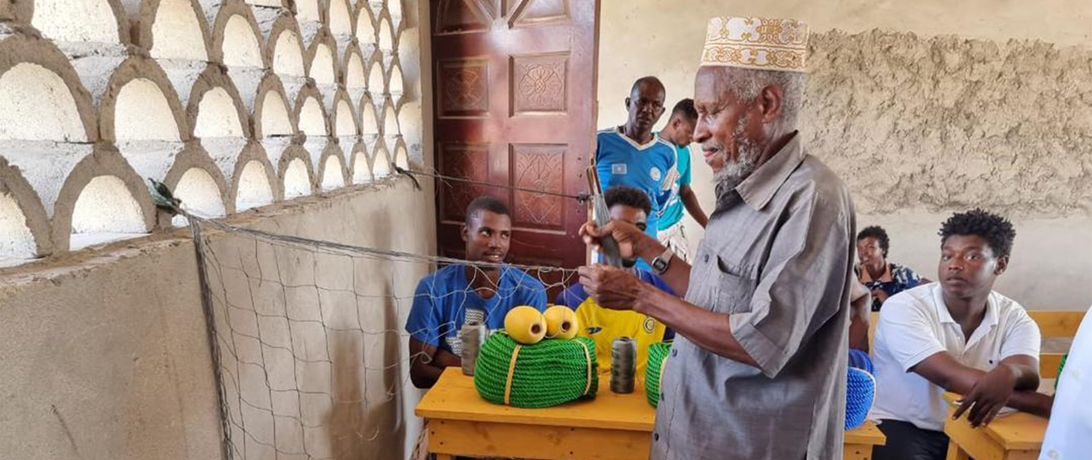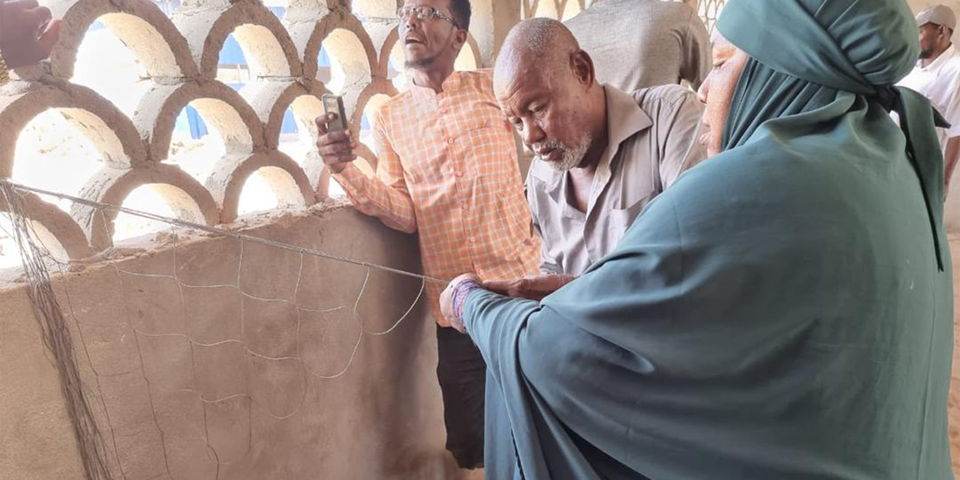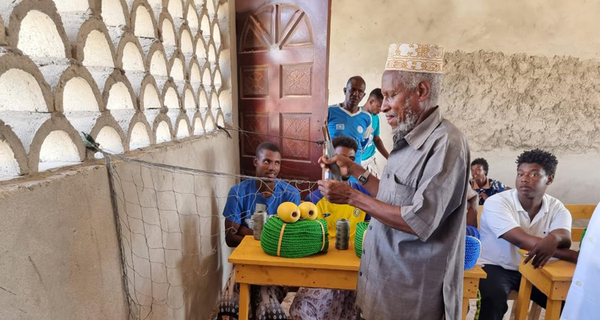The training program covered a wide range of topics including fishing gear materials, selection and purchase considerations, care and handling of nets and ropes, construction techniques, quantity estimation of materials, characteristics of floats, fishing gear design, net mending, and maintenance practices.
Participants were introduced to different techniques of net repairing and making through hands-on demonstrations. The practical session allowed participants to actively engage with tools and methods under the guidance of experienced facilitators. The primary objective was to enhance the skills of 15 trainees from Injooni and Foomi fishing communities, enabling them to effectively maintain, make, and repair different types of fishing gear.
The two-day training was interactive, fostering close collaboration between participants and facilitators. Discussions centered around the importance of selecting fishing gear that is environmentally sustainable and does not contribute to overfishing. Participants emphasized the need to be mindful of the marine environment and its species when choosing fishing equipment.
Secure Fisheries remains committed to promoting responsible fishing practices and building the capacity of local fishing communities to ensure long-term sustainability in marine resource management.



